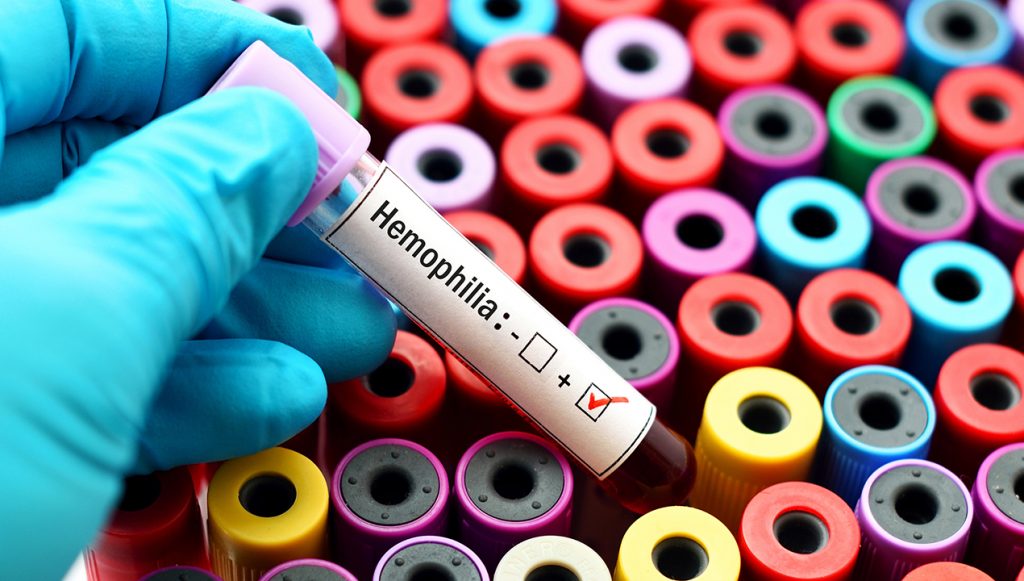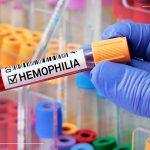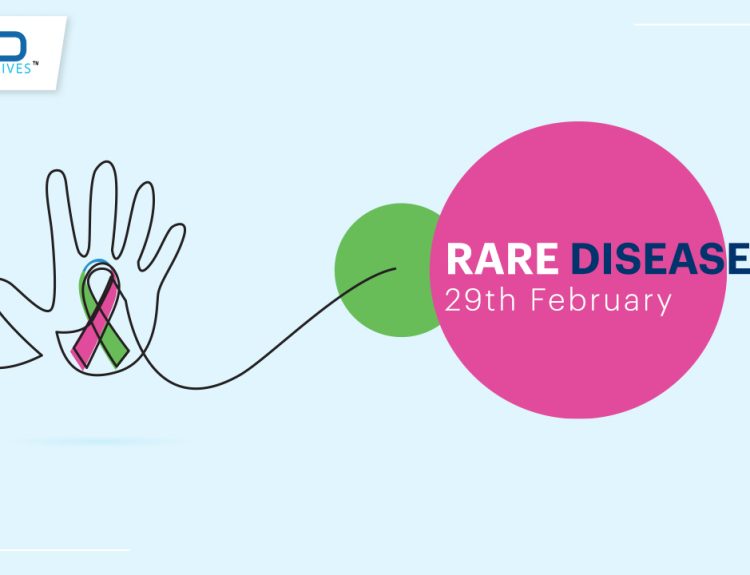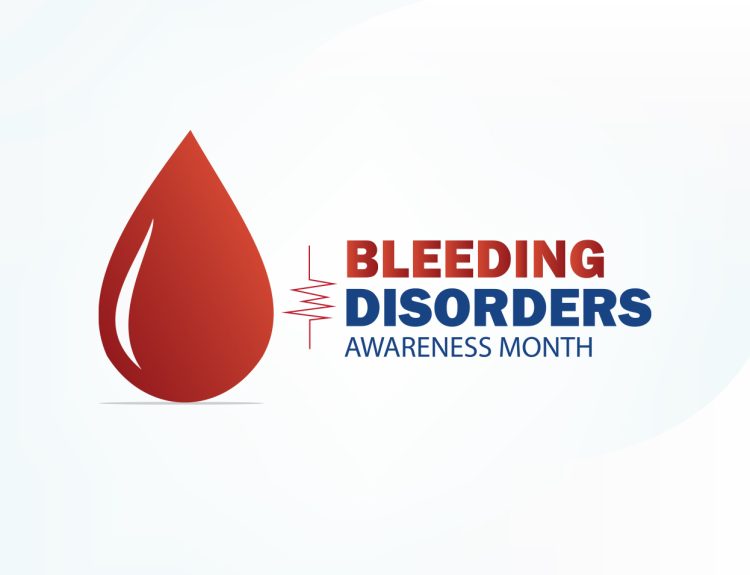Living with Christmas Disease, or Hemophilia B, reshapes the ordinary into an intricately managed journey. This rare bleeding disorder, stemming from a deficiency in clotting factor IX, doesn’t just affect routines; it demands constant vigilance and adaptation. Everyday moments, from the simplest activities to life’s regularities, require meticulous consideration to prevent bleeding complications. Yet, it’s more than physical precautions – emotional strains, financial burdens, and the social effects of haemophilia all shape this journey. However, amidst these challenges, individuals find strength in their communities, where shared experiences create bonds and offer support.
Through this blog, we will venture into the current challenges in the management of hemophilia, coping strategies, and more. So, keep reading!
How Does Living with Christmas Disease (Hemophilia B) Feel Like?

Imagine a life where even the most minor actions carry hidden risks. For those living with Christmas disease, it’s a reality. Everyday things like playing sports or doing simple tasks like brushing teeth come with extra caution. A fall or bump could mean more than a bruise; it might trigger a severe bleeding episode! This constant alertness isn’t just about physical stuff; it’s a mindset. It’s like always tiptoeing around, worried that any slip might lead to trouble. It’s tough, really tough. But the people facing this challenge? They are warriors. They have learned to adapt, finding new ways to live their lives while being careful.
Here’s presenting a captivating tale of Carrie’s (a Hemophilia B patient) remarkable journey that has been making waves on the internet:

Carrie’s journey with hemophilia began watching her father struggle with the severe physical, emotional, and social effects of Haemophilia B, shaping her understanding of the condition. Her diagnosis of mild hemophilia at 23 validated lifelong symptoms like easy bruising and menstrual issues.
Aware of the genetic nature of hemophilia, Carrie refrained from prenatal testing for her son Nicholas, who was later confirmed to have less than 1% factor IX levels at birth, signaling characteristics of Hemophilia B.
Nicholas’ early years were a balance of caution and adventure, marked by his resilience even after experiencing his first joint bleed at 11 months. Now 11, Nicholas embraces life despite current challenges in the management of Hemophilia B, thriving in sports and enjoying specialized camps for children with bleeding disorders.
Carrie’s advice to parents resonates deeply – “It’s going to be okay.” She urges parents not to shield their children excessively, fostering resilience. Her journey reflects the determination within families facing current challenges in the management of Hemophilia B, showcasing strength amidst challenges.
Like Carrie’s, there are several other stories that show the struggle, the fear, and the strength. It’s like watching someone dance on a tightrope, always balancing between caution and living life to the fullest. These stories are about bravery and finding ways to shine despite the odd characteristics of Hemophilia.
Listing Out the Challenges in the Management of Hemophilia B

Living with Christmas Disease (Hemophilia B) presents multifaceted challenges that deeply affect individuals on social, physical, and emotional levels:
- Physical Impacts & Daily Life: The condition imposes constraints on routine activities due to potential joint damage from frequent bleeds. This limitation affects mobility, requiring individuals to rely on physiotherapy and specialized exercises to alleviate pain and maintain movement.
- Social & Emotional Toll: Beyond the physical challenges, there’s a significant emotional toll associated with a chronic illness like Hemophilia B. Patients often struggle with stress, anxiety, and feelings of isolation, emphasizing the critical role of robust emotional support systems in managing their well-being.
- Financial Strain & Access to Care: Access to specialized treatments and medications adds a layer of financial stress. The costs of factor replacement therapies/gene therapy and consistent medical support can be burdensome, making access to comprehensive care a significant challenge for many individuals and their families.
- Adaptive Coping Mechanisms: Patients develop coping mechanisms to adapt to the daily challenges of Hemophilia B. These mechanisms encompass a wide range of strategies to maintain mental well-being while navigating the complexities of the condition.
- Impact on Relationships & Social Dynamics: The condition often influences relationships and social interactions. It can create barriers to participation in certain activities or lead to apprehension about engaging fully in social settings, affecting the individual’s sense of inclusion and connection within their social circles.
- Educational & Occupational Impacts: Managing Hemophilia B may impact educational pursuits or professional aspirations due to the need for frequent medical attention or limitations in physical capabilities. This can necessitate adjustments in academic or occupational settings to accommodate the individual’s health needs.
The Ultimate Coping Strategies & Support

The resilience of individuals living with Christmas Disease (Hemophilia B) is truly inspiring. Here’s a more comprehensive elaboration on the ways they usually navigate current challenges in the management of Hemophilia B and find support:
- Resilience Amid Challenges: Despite facing numerous hurdles daily, individuals with Christmas Disease exhibit exceptional resilience. They confront the social effects of Haemophilia B, physical limitations, financial burdens, and emotional stress, yet they persist and adapt to manage their condition effectively.
- Support Networks: Support groups, both in virtual spaces online and through in-person meetings, serve as lifelines for those affected by current challenges in the management of Hemophilia B. These communities provide a safe platform for individuals to share their experiences, seek advice, and find solace in knowing they’re not alone. These groups’ mutual support and understanding contribute significantly to their mental and emotional well-being.
- Knowledge Sharing & Empowerment: Education about the disease and self-care practices is crucial for individuals living with Christmas Disease. Many patients actively seek information, learn about treatment options, and adopt strategies to manage their condition better. This knowledge empowers them to take control of their health and make informed decisions about their care.
- Advocacy & Awareness: Patients often engage in advocacy efforts to raise awareness about the characteristics of Hemophilia B. By sharing their stories and advocating for better access to treatments, improved healthcare services, and increased public understanding, they contribute to a more supportive environment for themselves and others affected by the condition.
- Embracing Empowering Tools: Patients embrace various tools and resources that empower them in their journey with Christmas Disease. This includes utilizing technological advancements for remote healthcare access, engaging in telemedicine, and leveraging online resources for information and support.
- Psychosocial Support: Beyond medical interventions, psychosocial support is crucial. Counseling, mental health services, and interventions aimed at managing stress and anxiety play a vital role in enhancing the overall quality of life for individuals dealing with Christmas Disease.
Conclusion – Promising Prospects Ahead!

Living with Christmas Disease can present numerous challenges, yet there’s a glimmer of hope on the horizon! Remarkable strides in medical science offer a beacon of promise for individuals battling Christmas Disease/Hemophilia B. Researchers are working hard to make life easier for people with Christmas Disease. They are developing new treatments like gene therapies and better clotting factor replacements. These new treatments have a lot of potential to be better and more personalized. If they work out, they could improve the lives of people with this condition. To learn more about the promising prospects, read this blog – Research Frontiers in Christmas Disease (Hemophilia B): Promising Developments and Future Prospects.
Join MDForLives’ paid patient surveys and share your invaluable firsthand experiences with past or ongoing treatments. Your insights are pivotal in shaping treatment procedures, aiding physicians, and elevating the standard of care provided to patients.

MDForLives is a global healthcare intelligence platform where real-world perspectives are transformed into validated insights. We bring together diverse healthcare experiences to discover, share, and shape the future of healthcare through data-backed understanding.






